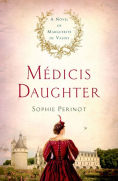There are four points of view telling the story of Salt to the Sea, and each is distinctive, secretive, and profound. We have Emilia, a young Polish girl of fifteen who has faced untold horrors of World War II, and is saved early on by the "knight", Florian. Florian has a major secret of his own; he is carrying something very valuable and is trying to get away to safety while simultaneously exacting revenge on those with whom he worked. Distracting Florian, however, is the young nurse, Joana, a Lithuanian who is leading a rag tag group to the safety of a ship leaving Germany now that Hitler has deemed it all right in the final months of the war. Finally, there is Alfred, a young sailor in the German navy who "writes" letters in his head to his love, Hannelore, while avoiding work and planning a dazzling future.
Though these are the voices we hear, there are so many others involved and each one will wrap themselves around your heart, in particular the Shoe Poet and the Wandering Boy who are assisted in getting on the liner Wilhelm Gustloff along with the others. They are stunning examples of man's inhumanity to man and yet the power of hope and the determination to survive. Sepetys gives them lives that represent so many more who experienced as much trauma or even worse.
So much happens that you will find yourself wanting to totally inhale this story, but make yourself slow down and feel the ache of hunger, the biting cold, the long walks, the deceptions and the triumphs. Sepetys has done her research meticulously and it shows in every word. I cannot rate this one highly enough and I urge you to read it and remember it.
~taminator40


















